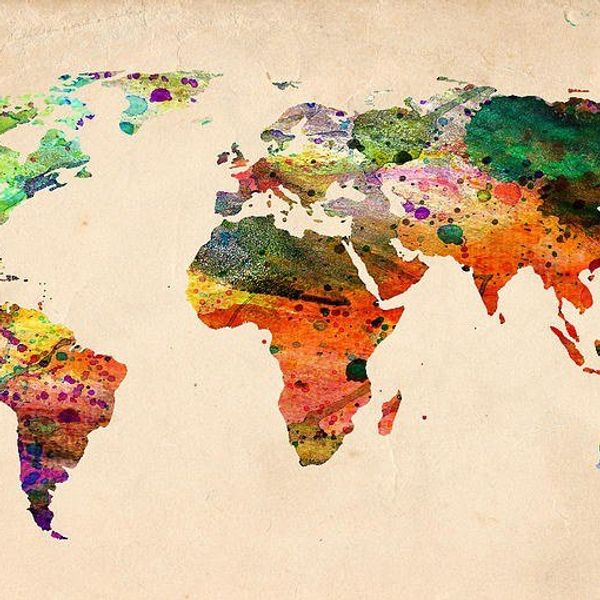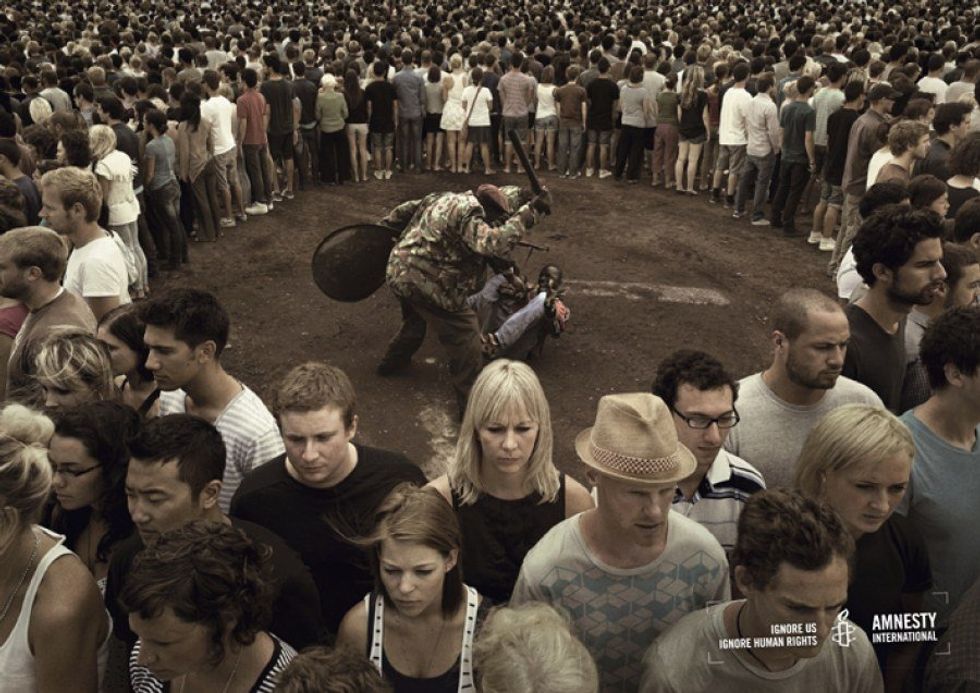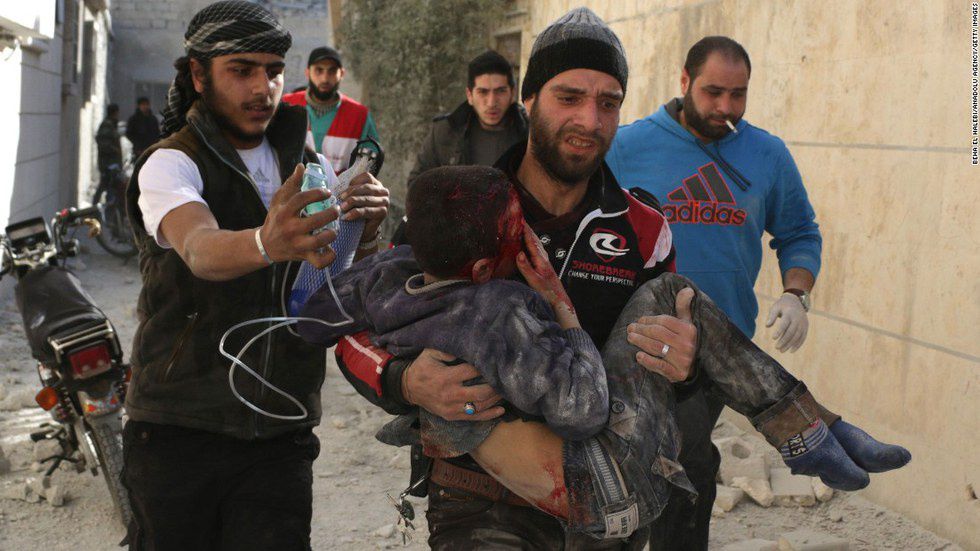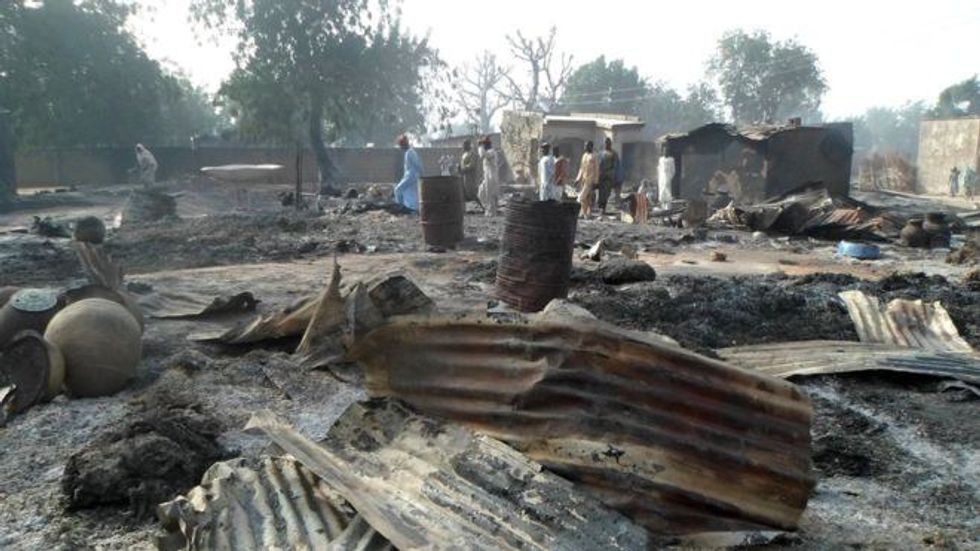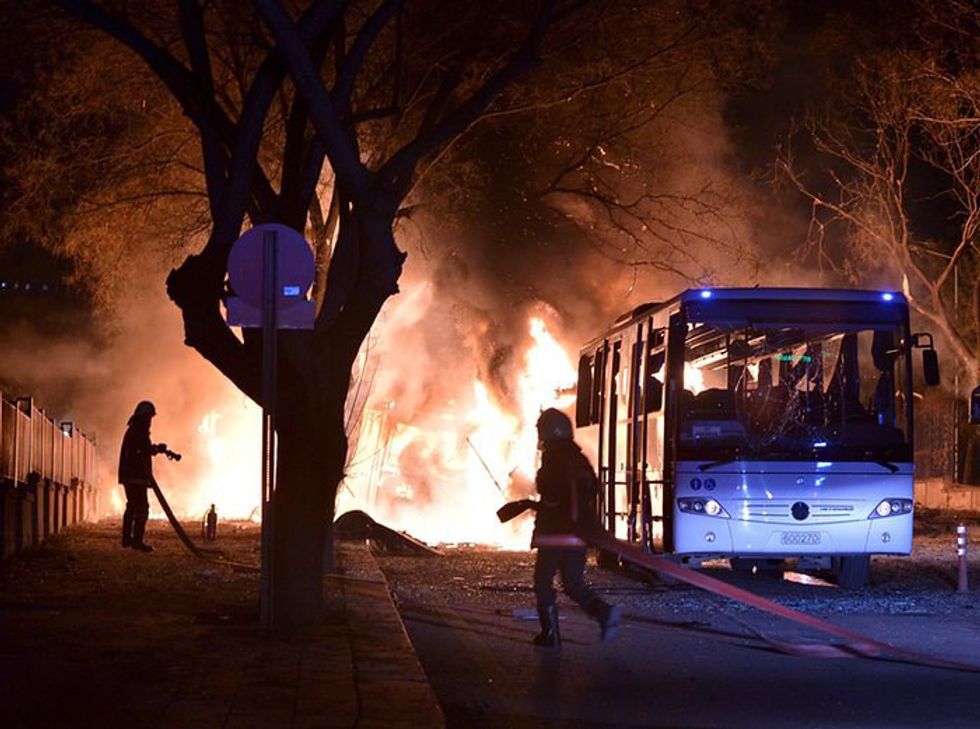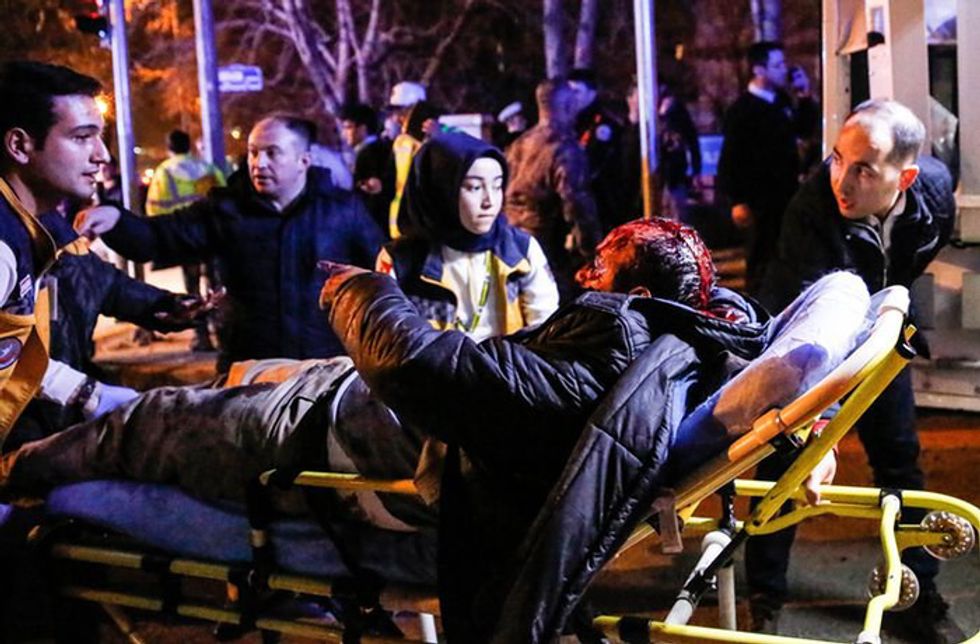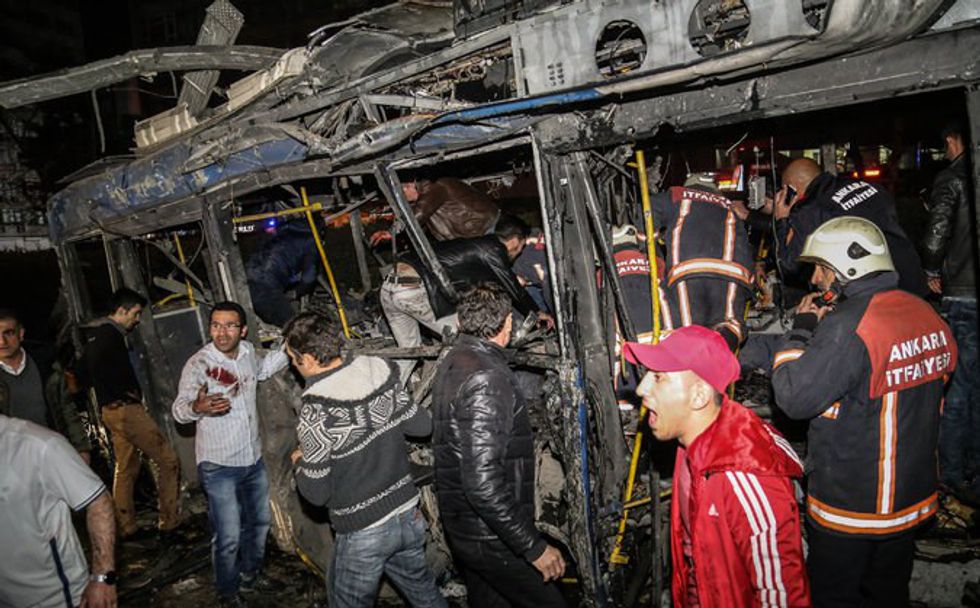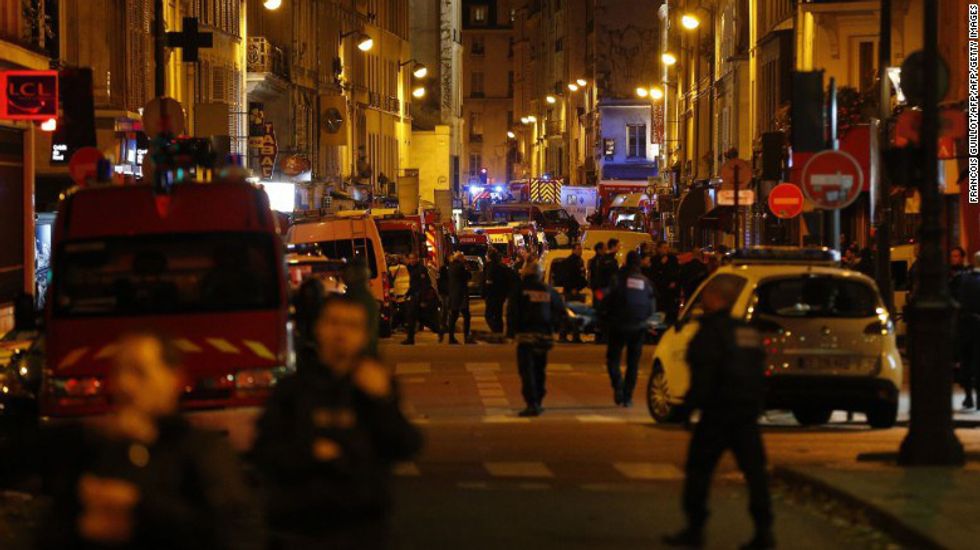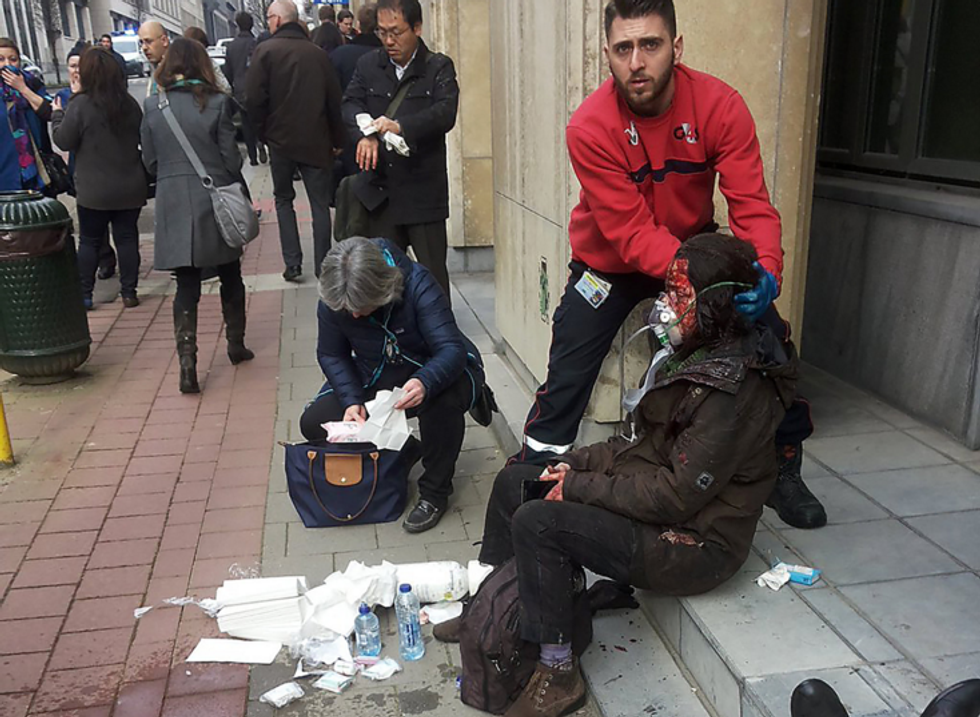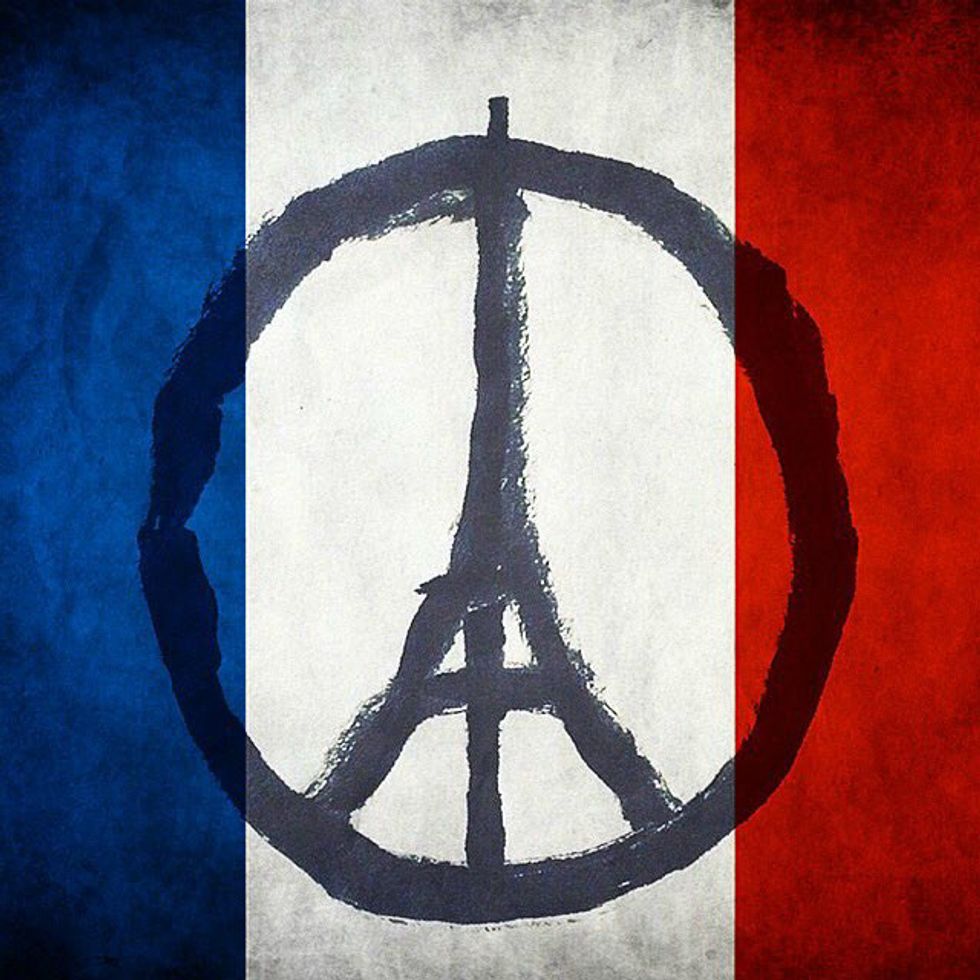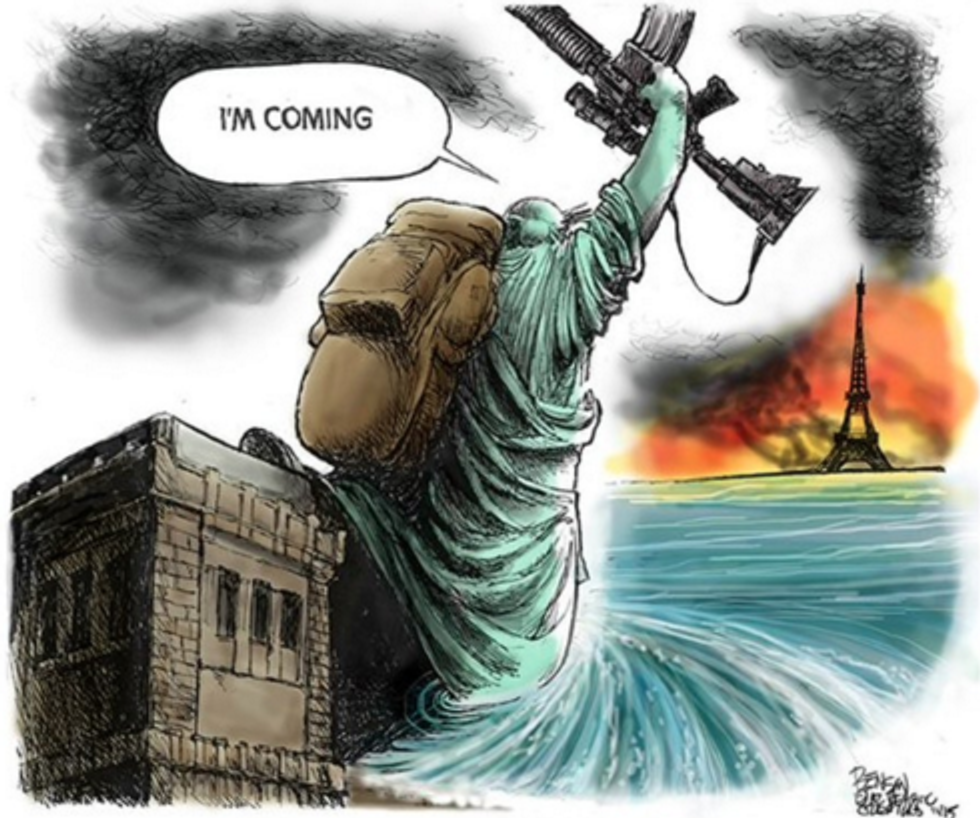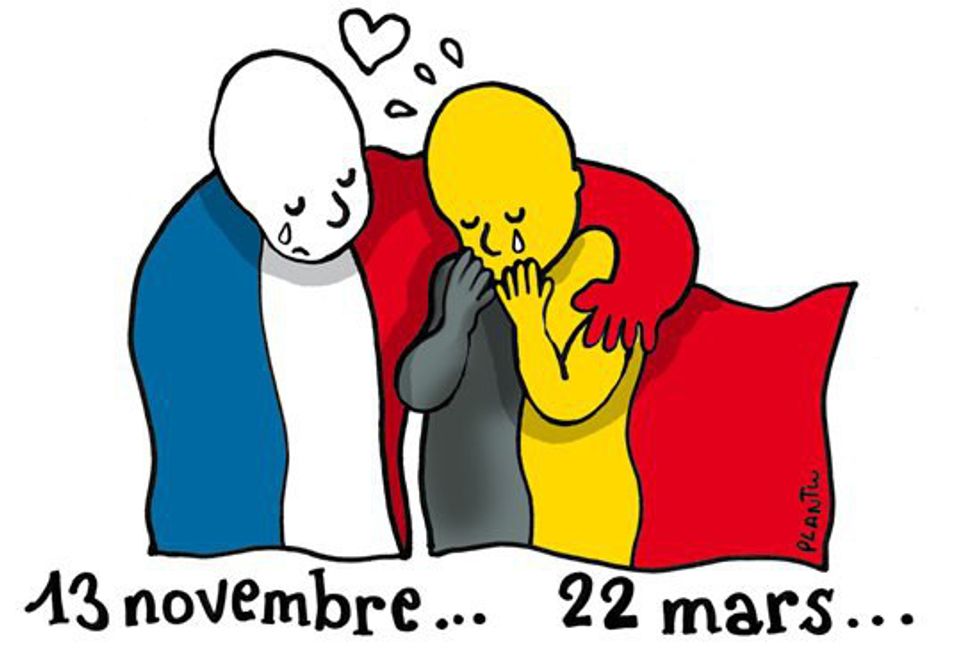If you asked the average American what the biggest issues facing their nation today are, they would be likely to reply "immigration" or "terrorism". While many Americans believe that an attack on America by ISIS is imminent, the truth is that the average American is just as likely to be crushed to death by televisions or furniture as they are to be killed by a terrorist. This paranoia is deeply ingrained into American society ever since the September 11th attacks on the World Trade Centers in New York City. However, only 45 Americans have been killed in violent Jihadist attacks since 9/11. That's an average of about 3 people per year from 2001-2015. In comparison, 610,000 Americans die from heart disease in a single year. The numbers are slightly higher in Europe, due to the fact that the Syrian civil war is right on their doorstep.
The story is a much different one in the nations of the Middle East and West Africa. In Syria it is not uncommon for ordinary people, perhaps out buying fruit in a market, to be hit and killed by a Russian airstrike. Although Russia claims to only be targeting terrorists, it is estimated that the airstrikes have killed more than 1,000 civilians including more than 200 children.
This year alone there has been 218 terrorist incidents. Of those 218 only 6 occurred on western soil. The politically fueled American media would like you to believe that the number is much higher and we are in constant danger. When it comes to places that are actually consistently threatened by terrorism, however, the news media tends to turn a blind eye. The top five countries most affected by terrorism are Iraq, Afghanistan, Nigeria, Pakistan, and Syria. Turkey, America's ally and a member of NATO, ranks in the top 30. If you were to read or watch the news you would likely see little to no coverage of the terrorist attacks occurring in these countries.
Take, for instance, the February attack on Dalori, Nigeria carried out by Boko Haram. The radical Islamist group rode motorcycles to Dalori late on a Saturday night. They then went on a bloody rampage through the northeastern village and two nearby camps that housed 25,000 refugees. The militants firebombed huts and shot down anyone who tried to flee. One survivor who spoke to the Associated Press said that he could hear children screaming as they were burned alive in their own homes. It is said that the fires raging in the village could be seen nearly six miles away. A witness said that there were also three female suicide bombers who blew themselves up as part of the attack. While the exact number of dead is unknown, it is estimated to be about 86, with many of the charred and bullet-riddled bodies being recovered the following Sunday. On top of the dead and 136 injured, emergency agency chief Mohammed Kanar told CNN that "some women were kidnapped by the Boko Haram gunmen, but I don't know how many they were." Soldiers at the scene claimed they were unable to overpower Boko Haram and that the militant group only retreated after more troops arrived with heavier weapons. The villagers worry that there will be another attack because of the Nigerian military's slow response.
So where was the public outcry over this horrendous atrocity? Where was the outrage? In short: there wasn't any. The news media reported on the Dalori attacks for about a day or two and then the tragedy subsequently fell off the radar.
Another example of the American news media's disproportionate attention to certain parts of the world are the bombings that took place in Ankara, Turkey. During the evening rush hour on February 17, 2016, at least 28 people were killed and another 61 wounded when a vehicle full of explosives detonated as military buses passed by. The blast was heard all over the city and witnesses said they could see large plumes of smoke rising from the area. While some of the victims were civilians the attack clearly targeted the military. Deputy Prime Minister Bekir Bozdag declared the attack an "act of terrorism" although, at the time, no one had claimed responsibility. It wasn't until two days later that a breakaway faction of Turkey's outlawed Kurdistan Workers Party, or PKK, announced they carried out the attack in a statement posted on their website. The statement reads in part: "On February 17 in the evening, a suicide attack was carried out by a sacrifice warrior on a military convoy of the fascist Turkish Republic in Ankara. The attack was realized by the Immortal Battalion of the TAK." The statement also claimed that the group would continue to carry out attacks.
The Kurdistan Worker's Party kept their word by detonating a car bomb in Guven Park in the Kizilay District, which is an important transportation hub and commercial area extremely close to the Justice and Interior Ministries, on the evening of Sunday, March 13th. The explosion tore through the busy square, claiming 37 lives and wounding 125 others. That death toll could include one or two of the attackers. A police claimed to have found one of the attacker's severed hand 300 meters from the blast site. While the PKK did not outright claim responsibility for the attack a security official told Reuters news agency that initial findings suggested it was their work. Following the attack was a ban on all social media to try to prevent the sharing of images from the site. Turkish president Recep Tayyip Erdogan blamed "regional instability" for the violence.
The reporting of the 2016 Ankara bombings barely broke the surface of the American news media. There was no outpouring of support or words of kindness. Life went on as if nothing had taken place.
Then, on the opposite end of the spectrum, are the November 2015 attacks on Paris and, most recently, the March 2016 attack on Brussels.
Late Friday night on November 13, 2015, many Parisians and tourists were having fun out on the town. Then, at approximately 9:17pm, the first blast of the night went off outside the Stade de France, where a friendly soccer match was being played between France and Germany in the presence of French President François Hollande. What occurred next was a string of suicide bombings and shootings that President Hollande described as a "...horrible ordeal that, once again, assails us." He also went on to say that "faced with terrorism, France needs to be strong." There was a concert going on at a popular music hall named the Bataclan, which saw the most violence that night. It was there that as many as 100 hostages were taken and the majority killed. One survivor from inside the Bataclan said that when the shooting started "people were falling like dominos." That night saw more than 120 people killed and 200 injured, many critically. The attack came just 11 months after a gunman with ties to Al-Qaeda carried out a deadly attack on the offices of French satirical magazine Charlie Hebdo.
Terror came to Brussels, Belgium on the morning of Tuesday, March 22nd. At approximately 7:58am local time two suicide bombers detonated in the departure lounge of Brussels Airport in Zaventem about 37 seconds apart according to reports by CNN. The blast claimed 10 lives. European Commission official Mr. O'Connor, a witness at the scene told The New York Times, “There were people with blood on their faces, people with injuries on the ground outside the terminal building. It was the kind of stuff you hope to never see.” Another bomb, that had been left at the airport, exploded as soon as the bomb squad arrived. Thankfully, no one was injured. A little over an hour later, another suicide bomber exploded on the rail tracks of Maelbeek subway station, killing at least 21 people. Officials have claimed that between the two sites an estimated 250 people were injured. Brian Carroll, 31, of Washington was riding one of the trains when the bomb went off. He told The New York Times that after waiting for a couple minutes, he thought to himself, "'I’ve got to get out of here.' I headed toward an exit. There was smoke and soot everywhere. There was glass everywhere. It was like running through a cloud of dust.”
There are many similarities between the attacks that took place in Nigeria, Turkey, France, and Belgium. All saw heavy casualties and injuries. All saw destruction on a massive scale. All were perpetrated by Islamic Extremists.
For all the similarities, there are a few differences between the attacks. One is location; the Paris and Brussels attacks obviously took place in highly industrialized western European nations. The attacks on Ankara took place in Turkey, a nation with a high Muslim population, that is often referred to as the Gateway to the Middle East. Then there is the attack on Dalori, a small village in northeastern Nigeria, which is situated in western Africa.
Another glaring difference between the attacks is the coverage, or lack thereof, by the news media, and the amount of support and sympathy shown by the international community.
When the first reports started rolling in about the Paris attacks, that at the time were still unfolding, reactions were almost instantaneous. The phrase 'Je Suis Paris', translated to 'I am Paris' in English, was plastered all over social media and news outlets. Artists from around the world displayed their, and their country's, solidarity with Paris through their work. On Facebook nearly everyone had the French flag filter over their profile picture. What had happened and what was happening in Paris remained the number one news story for weeks following the attacks.
Reactions to the Brussels attacks were similar to that of Paris, only on a much smaller scale. President Barack Obama ordered all flags to be flown at half-mast until March 26th to honor the victims of the attacks. Other leaders from across the globe expressed their sympathies and condemned the attacks. A few Facebook users changed their profile pictures to one with a Belgian flag filter. The hashtag #PrayForBrussels was trending on Twitter. What had happened and what is currently happening in Belgium is still making headlines, and will continue to do so for weeks to come.
Now, where was Ankara's 'Je Suis' moment? As previously stated, Turkey is America's ally and a member of NATO. Are these empty titles that don't merit attention and help during hard times?
Where was the hashtag #PrayForDalori? While Nigeria is not an ally of the United States and is not a member of NATO, shouldn't the fact that children were burned alive in their own homes garner a few headlines or, at the very least, some outrage?
Why does the American news media turn a blind eye to these atrocities? Why don't their victims matter?
The fact of the matter is that the United States doesn't care about foreign affairs unless they have the potential to influence national interests. The American populace views the European people and their way of life as being the most similar to their own, which makes sense due to the fact that America was colonized by European nations. This leads the American news media, and ultimately the American people, to believe that if a European country's national security is comprised the same will inevitably happen to the United States. However, this concern never arises when an attack is carried out in a non-Western country that is not highly industrialized, or as industrialized, as the United States and parts Europe.
The people of Turkey, Nigeria, and the other four countries in the top five most plagued by terrorism don't look like us. They don't act like us. They don't dress, eat, or speak they same way that we do. This disconnect has us believe that the things that happen to them couldn't possibly happen to us, so we need not worry. We need not care. When they become victims of these horrendous acts our world keeps spinning while theirs is shattered, along with that of their friends, family, and all who knew them.
Therefore because they don't look or act like us they don't deserve our headlines or our sympathy. At the end of the day we will not see the victims of the Ankara or Dalori attacks looking back at us in the mirror. We will only see our European counterparts, the victims of Paris and Belgium.
This skewed reporting is creating a 'them vs. us' paradigm when it comes to terrorism, instead of the reality that it is actually 'them vs. the world'. It is sowing Islamophobia and Xenophobia in both Europe and America when ISIS and Boko Haram have killed far more Muslims than non-Muslims.
The American people and news media need to have a major paradigm shift. They need to realize that everyone is threatened by terrorism and that everyone is trying to combat it, not just the United States and Europe. They need to realize that they are not in a league of their own.
Everyone who dies a violent death at the hands of terrorist organizations deserves outrage and sympathy because we are all people, we are all equal, and we are not alone.
"First they came for the Socialists, and I did not speak out—
Because I was not a Socialist.
Then they came for the Trade Unionists, and I did not speak out—
Because I was not a Trade Unionist.
Then they came for the Jews, and I did not speak out—
Because I was not a Jew.
Then they came for me—
and there was no one left to speak for me."
-Martin Niemöller (1892-1984), Protestant pastor and Holocaust survivor

